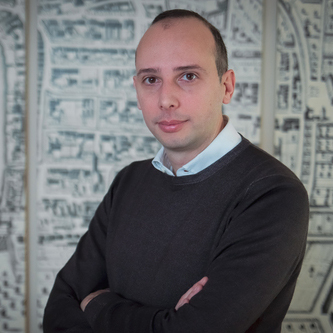
FogAtlas (evolution of the former Foggy platform) is a software framework aiming to manage a geographically distributed and decentralized Cloud Computing infrastructure that provides computational, storage and network services close to the data sources and the users, embracing the Fog Computing paradigm. FogAtlas is able to manage the so called Cloud-to-Thing Continuum offering service-aware workload placement and zero-touch deployment. It is an evolution of the well known paradigms of IaaS and PaaS adding the concept of “locality” to the traditional Cloud Computing model and easing the operations of a Fog Computing infrastructure.
FogAtlas is built on top of Kubernetes and other Open Source technologies, namely, Ansible, Prometheus and Grafana.
FogAtlas is available on the website. You may find details on the architecture, publications, and more.
Cloud Computing becomes distributed and decentralized
Nowadays Cloud Computing is a well consolidate technology offering a variety of services and functionalities to customers operating in different verticals willing to get on-demand computational resources through a convenient pay-as-you-go model. Cloud Computing (i.e. the Public Clouds) is by its nature “centralized”: huge amount of resources are concentrated in few big data centers so as to increase the operational efficiency and to lower the complexity of the architectural solutions.
However such a centralization has some limitations: in the last years, thanks to the Internet of Things (IoT), huge amount of data is produced in remote locations and its elaboration requests data to be moved from those locations to the central Cloud. Such a transfer can create issues in terms of inefficiencies (massive utilization of network bandwidth, delays due to the network latency), availability and robustness (network partitioning), data privacy and security and more generally a suboptimal usage of the resources. A similar problem has been already seen in the context of commuting: we all are familiar with the traffic jam generated by commuting from the suburbs to downtown. If commuting problem can be tackled with the introduction of moderns ways of working, namely “smart working”, “agile working”, “work from home”, similarly data transfer problem can be tackled distributing the computational resources close to the sources of data allowing at least a pre-elaboration and a first aggregation where data is produced. Therefore Cloud Computing must escape from the traditional centralized data centers and offer its services closer to the users or to the data sources embracing a more distributed and decentralized paradigm.
What is FogAtlas
FogAtlas is an architectural framework and a software platform for orchestrating cloud-native applications and helping the operations in a multi-tier, highly distributed, heterogeneous and decentralized Cloud Computing environment like the one foreseen by the Fog Computing paradigm. The main features offered are:
- Set-up, monitoring, operations and fleet management of a multi-tier, distributed Cloud infrastructure;
- Zero-touch deployment and orchestration of containerized applications, resource allocation and workload placement;
Therefore, the problems that FogAtlas aims to solve are mainly related with fleet management and workload orchestration in an environment where different tenants and/or applications compete for the same resources. Of course such a context adds many “degrees of freedom” with respect to similar problems in a centralized and homogeneous cluster of resources: resources and services belonging to distributed clusters are disparate, provide different capabilities and are widespread on different locations, connected to data centers (e.g. the Public Cloud) with a network that is not always reliable and/or able to guarantee requested performances. The process of scheduling the workload takes into account different parameters and embrace novel policies with respect to the ones currently used: for instance the location, the network characteristics, the computational profile and the kind/model of a given physical resource are taken into account in order to efficiently allocate resources and schedule the workload.
FogAtlas is based on Open Source technologies, namely Kubernetes and Ansible, properly extended and integrated with software developed by FBK RiSING team so as to handle with an unified approach not only Cloud Computing infrastructures but also Fog Computing ones.
Selected Publications
-
Francescomaria Faticanti, Marco Savi, Francesco De Pellegrini, Domenico Siracusa
Locality-aware deployment of application microservices for multi-domain fog computing
In: Computer Communications (DOI) -
Francescomaria Faticanti, Daniele Santoro, Silvio Cretti, Domenico Siracusa
An Application of Kubernetes Cluster Federation in Fog Computing
In: Proceedings of 2021 24th Conference on Innovation in Clouds, Internet and Networks and Workshops (ICIN) (DOI) -
Francescomaria Faticanti, Marco Savi, Francesco De Pellegrini, Petar Kochovski, Vlado Stankovski, Domenico Siracusa
Deployment of Application Microservices in Multi-Domain Federated Fog Environments
In: Proceedings of IEEE 2020 International Conference on Omni-layer Intelligent Systems (COINS) (DOI) -
Francesco De Pellegrini, Francescomaria Faticanti, Mandar Datar, Eitan Altman, Domenico Siracusa
Optimal Blind and Adaptive Fog Orchestration under Local Processor Sharing
In: Proceedings of 18th International Symposium on Modeling and Optimization in Mobile, Ad Hoc and Wireless Networks (WiOpt 2020) -
Marco Savi, Daniele Santoro, Katarzyna Teresa Di Meo, Daniele Pizzolli, Pincheira Miguel, Raffaele Giaffreda, Silvio Cretti, Seung woo Kum, Domenico Siracusa
A Blockchain-based Brokerage Platform for Fog Computing Resource Federation
In: Proceedings of Conference on Innovation in Clouds, Internet and Networks (DOI) -
Francescomaria Faticanti, Francesco De Pellegrini, Domenico Siracusa, Daniele Santoro, Silvio Cretti
Cutting Throughput with the Edge: App-Aware Placement in Fog Computing
In: Proceedings of IEEE EDGECOM 2019 (DOI) -
Daniele Santoro, Daniel Zozin, Daniele Pizzolli, Francesco De Pellegrini, Silvio Cretti
Foggy: A Platform for Workload Orchestration in a Fog Computing Environment
In: Proceedings of Cloudcom 2017, IEEE 9th International Conference on Cloud Computing Technology and Science (DOI) -
Daniele Pizzolli, Giuseppe Cossu, Daniele Santoro, Luca Capra, Corentin Dupont, Charalampos Doukas, Francesco De Pellegrini, Fabio Antonelli, Silvio Cretti
Cloud4IoT: a Heterogeneous, distributed and autonomic cloud platform for the IoT
In: Proceedings of IEEE International Conference on Cloud Computing Technology and Science (CloudCom), 2016 (DOI)




